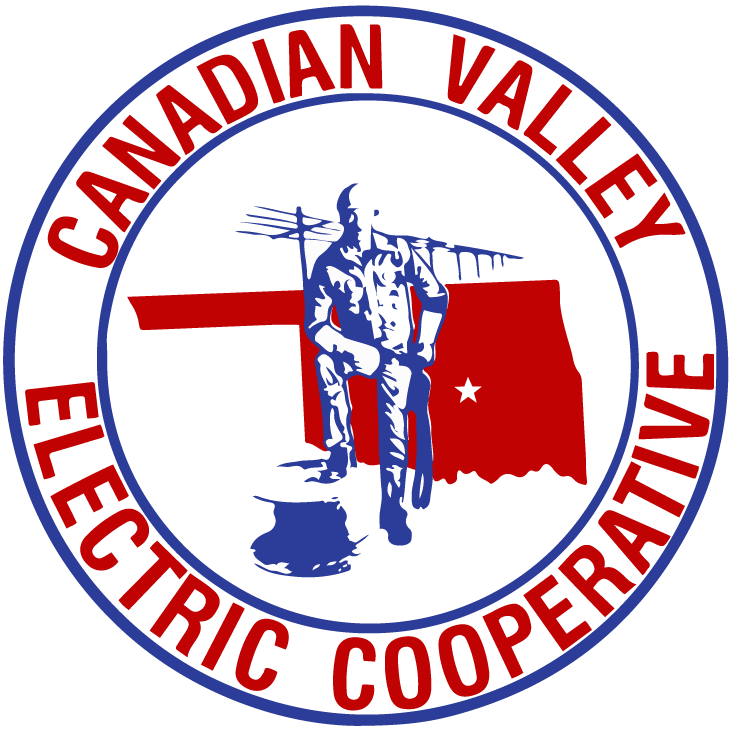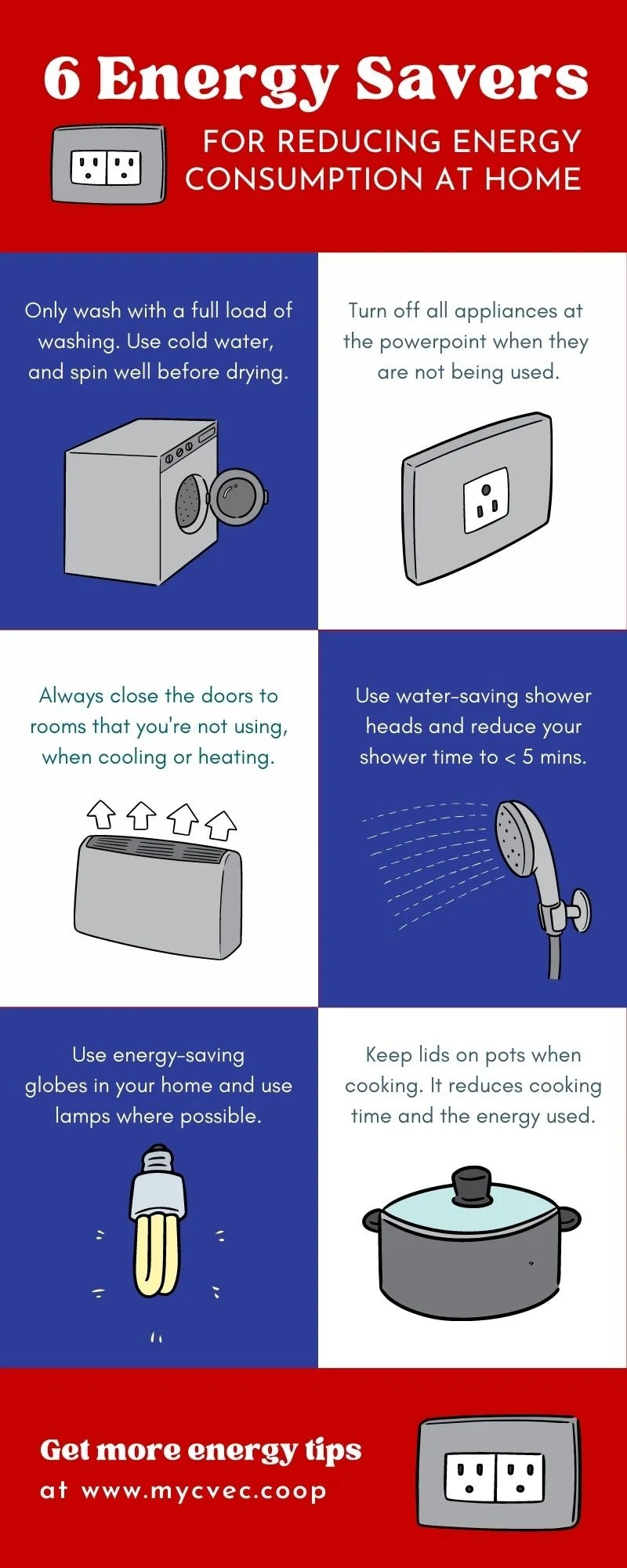Energy Saving Tips
Canadian Valley Electric Cooperative is your partner in energy savings!
By implementing energy efficiency practices at your home and business, you can save energy and reduce your electric bill. Here are some easy, low-cost ways to use energy wisely:
HeATING AND COOLING SYSTEMS
The average home’s air conditioning system accounts for 50% OR MORE of the monthly electric bill. To reduce cooling costs:
Clean and maintain your furnace annually. Replace or clean filters in a hot air system or heat pump monthly.
If you are replacing your AC unit, make sure you replace it with a high-efficiency heat pump.
If you have an inefficient furnace, consider adding a high-efficiency heat pump. It could save up to 40% on heating costs and keep you cool next summer.
When the heat is on, turn the thermostat to the lowest, setting it comfortable for your family, and leave it. Especially with a heat pump, vary the setting to no more than three-to-five degrees from day to night to heat efficiently.
Don't block conditioning vents with furniture or clutter. Keep them clean.
In the winter, close drapes at night and let the sun in during the day to cut energy costs.
Air Leaks and Insulation
Find and seal cracks, gaps, and leaks, and check the insulation. The cost of adding insulation can usually be recovered in just a few years with savings on heating and cooling bills.
Consider adding insulation to ceilings, walls, and attics. It can reduce cooling costs by 5% to 25%.
Heating pipes and air ducts should be insulated and sealed, especially in unheated spaces (basements, crawl spaces, garages).
Windows and doors must be caulked and weather-stripped to prevent conditioned air from leaking out or unconditioned air from coming in.
Water
Use less hot water and fix leaks.
Install low-flow faucets and showerheads.
Use only cold water in your washing machine.
Lowering the temperature by 10 degrees Fahrenheit could save 3 to 5% of your water heating costs.
Lighting
Switch to LED lights. LED bulbs last three times as long as CFL bulbs and use less energy.
Add motion detectors to outdoor lighting.
Use dimmer switches inside to match your lighting level to your need.
Appliances
Check refrigeration and freezer coils for a build-up of dust, dirt, or grease. This build-up insulates your refrigeration equipment coils and keeps them from cooling. Refrigerators can also be operated most efficiently when well stocked, allowing enough room for air to circulate freely around food.
Reduce the number of times you open your refrigerator during the day. Think about and decide what you will take out before you open the door to limit the length of time the door is open. Pack a freezer full for the most efficient operation.
Small electric appliances (i.e., microwaves, electric skillets, toaster ovens, and grills) are often quicker and more economical to use than your range. They can also help keep your kitchen cooler on hot days.
Preheat your oven only when baking bread or bread products - never for broiling.
Don't open the oven door to "peek" because each time you do, 20% of the heated air inside escapes.
Find some energy saver tools at https://www.energy.gov/energysaver/energy-saver



